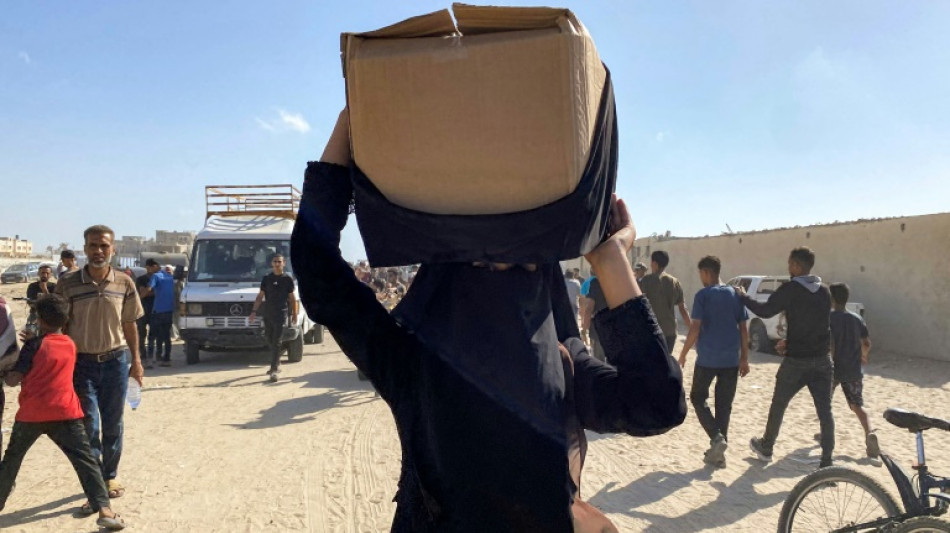
-
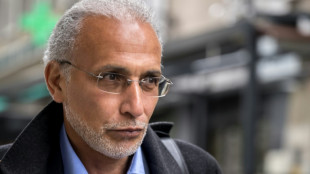 Swiss court rejects Islamic scholar Ramadan's rape conviction appeal
Swiss court rejects Islamic scholar Ramadan's rape conviction appeal
-
Russian attack kills 14 in Kyiv, including three children

-
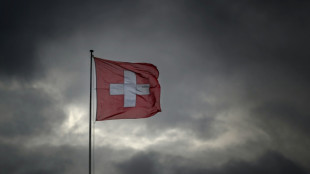 Swiss economy set to slow due to US tariffs
Swiss economy set to slow due to US tariffs
-
Hong Kong media mogul Jimmy Lai verdict to come 'in good time': judge

-
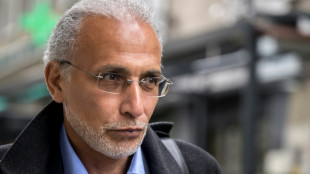 Swiss court rejects Tariq Ramadan rape conviction appeal
Swiss court rejects Tariq Ramadan rape conviction appeal
-
Asian markets mixed after Nvidia earnings

-
 Rising Australian golfer makes comeback after losing sight in left eye
Rising Australian golfer makes comeback after losing sight in left eye
-
Scandal facing sister of Argentina's president: 3 things to know

-
 Need a pee? Japan has QR code for that
Need a pee? Japan has QR code for that
-
Five things to know about Guyana

-
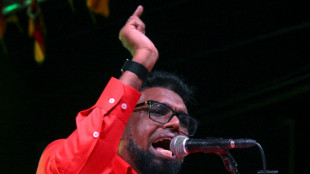 Guyana, emerging oil superpower, elects new leaders
Guyana, emerging oil superpower, elects new leaders
-
Nigerian designer pushes 'Afro-lux' onto the global fashion scene

-
 Gunman still at large after Australian police killings
Gunman still at large after Australian police killings
-
Norway, environmentalists back in court over oil field permits

-
 Trump moves to limit US stays of students, journalists
Trump moves to limit US stays of students, journalists
-
Messi brace propels Miami into Leagues Cup final

-
 Attack and never give up: Inside Japan's deadly boxing scene
Attack and never give up: Inside Japan's deadly boxing scene
-
Russia hits Kyiv with 'massive' deadly overnight strikes
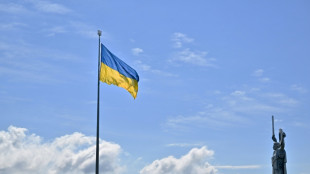
-
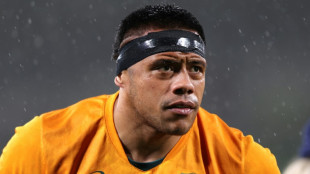 Injury-hit Wallabies welcome back Alaalatoa for Argentina Tests
Injury-hit Wallabies welcome back Alaalatoa for Argentina Tests
-
Long-awaited pension payments relief for Afghan retirees
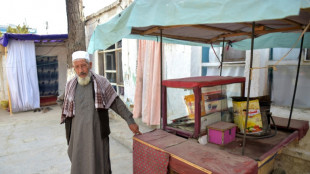
-
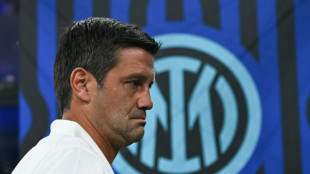 Chivu's Inter turning the page on Champions League humiliation
Chivu's Inter turning the page on Champions League humiliation
-
Japan confident on wind power after Mitsubishi blow
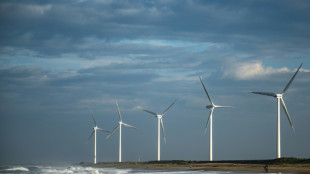
-
 Hamburg host derby rivals St Pauli in German top-flight reunion
Hamburg host derby rivals St Pauli in German top-flight reunion
-
China to bolster non-Western alliances at summit, parade
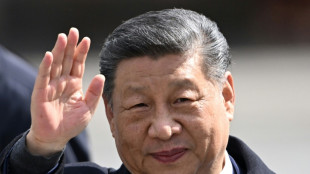
-
 Climate-driven wildfires reversing pollution progress in N. America: study
Climate-driven wildfires reversing pollution progress in N. America: study
-
Sabalenka eyes Fernandez revenge in US Open third round

-
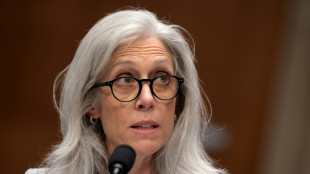 White House fires US health agency head after she refused to quit
White House fires US health agency head after she refused to quit
-
Super Rugby to mark 30th anniversary with tweaks to finals format

-
 Messi brace puts Miami into Leagues Cup final
Messi brace puts Miami into Leagues Cup final
-
Alcaraz races into US Open third round as Djokovic, Sabalenka advance
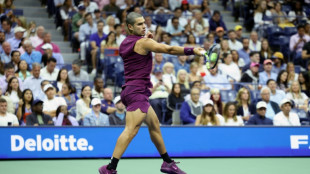
-
 Can a giant seawall save Indonesia's disappearing coast?
Can a giant seawall save Indonesia's disappearing coast?
-
Motive probed for US shooting that killed two children, injured 17

-
 Bisexual ex-Australian Rules player praised for 'courage and bravery'
Bisexual ex-Australian Rules player praised for 'courage and bravery'
-
South Korea to ban mobile phones in school classrooms

-
 Alcaraz banishes US Open demons to reach third round
Alcaraz banishes US Open demons to reach third round
-
Kipchoge feeling the pressure ahead of Sydney Marathon

-
 Clooney and Netflix team up for Venice festival spotlight
Clooney and Netflix team up for Venice festival spotlight
-
Trump stamps 'dictator chic' on Washington

-
 UN Security Council to decide fate of peacekeeper mandate in Lebanon
UN Security Council to decide fate of peacekeeper mandate in Lebanon
-
Alcaraz sprints into US Open third round as Djokovic advances
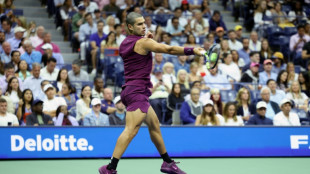
-
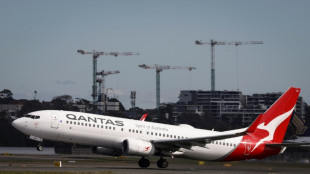 Qantas says profits up, strong travel demand ahead
Qantas says profits up, strong travel demand ahead
-
'Perfect storm': UK fishermen reel from octopus invasion
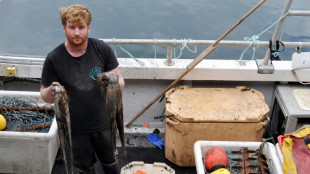
-
 Alcaraz crushes Bellucci to reach US Open third round
Alcaraz crushes Bellucci to reach US Open third round
-
Townsend reveals Ostapenko 'no class' jibe after US Open exit

-
 Israel ups pressure on Gaza City as Trump talks post-war plan
Israel ups pressure on Gaza City as Trump talks post-war plan
-
NATO says all countries to finally hit 2-percent spending goal
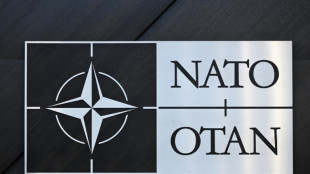
-
 Rangers humiliated, Benfica deny Mourinho's Fenerbahce Champions League place
Rangers humiliated, Benfica deny Mourinho's Fenerbahce Champions League place
-
Shooter kills two children in Minneapolis church, injures 17 others

-
 AI giant Nvidia beats earnings expectations but shares fall
AI giant Nvidia beats earnings expectations but shares fall
-
Kane rescues Bayern in German Cup first round


EU hardens tone on Israel, but will it make a difference?
With reports of acute suffering in Gaza flooding the airwaves, EU leaders have toughened their tone on Israel -- but the bloc will need to bridge deep divisions to move from rhetoric to a real-world impact on the conflict.
The shift has been most noticeable from key power Germany, one of Israel's staunchest allies in the world, its loyalty rooted in the trauma of the Holocaust.
After an Israeli strike killed dozens, including many children, in a Gaza school-turned-shelter Monday, German Chancellor Friedrich Merz declared he "no longer understands" Israel's objectives in the war-ravaged Palestinian enclave.
"The way in which the civilian population has been affected... can no longer be justified by a fight against Hamas terrorism," he said.
Berlin's stern new tone found an echo Tuesday in Brussels, where the German head of the European Commission, Ursula von der Leyen, denounced as "abhorrent" and "disproportionate" the past days' attacks on civilian infrastructure in Gaza.
An EU diplomat called such language both "strong and unheard of" coming from the commission chief, among the first to rally to Israel's side in the wake of the October 7, 2023 Hamas attacks that triggered the Gaza war.
The explanation? "Merz has moved the dial" in Brussels, said one EU official.
"There's been a very notable shift over recent weeks," agreed Julien Barnes-Dacey, head of the Middle East programme at the European Council on Foreign Relations (ECFR), in a podcast by the think-tank -- arguing it reflects a "sea change of European public opinion".
Translating talk into action is another matter, however.
- Longstanding divisions -
Germany, the main supplier of weapons to Israel after the United States, this week rebuffed calls to cut off arms sales to Prime Minister Benjamin Netanyahu's government.
On Tuesday however, in a barely veiled threat, its foreign minister warned Israel against crossing a line.
"We defend the rule of law everywhere and also international humanitarian law," said Johann Wadephul. "Where we see that it is being violated, we will of course intervene and certainly not supply weapons that would enable further violations."
The European Union has long struggled to have an impact on the Mideast conflict due to long-standing divisions between countries that back Israel and those seen as more pro-Palestinian.
Last week, in a milestone of sorts, the bloc launched a review to determine whether Israel is complying with human-rights principles laid out in its association agreement with the EU -- a move backed by 17 of 27 member states.
EU top diplomat Kaja Kallas said Wednesday she hopes to present options on the next steps to foreign ministers at a June 23 meeting in Brussels.
Suspending the EU-Israel accord outright would require unanimity among member states -- seen by diplomats as virtually unthinkable.
Berlin was among the EU capitals that opposed even reviewing the deal, as did fellow economic heavyweight Italy.
But Barnes-Dacey sees "the possibility of a qualified majority of states imposing some restrictions" under the trade component of the agreement.
The EU is Israel's biggest commercial partner, with 42.6 billion euros ($48.2 billion) traded in goods in 2024. Trade in services reached 25.6 billion euros in 2023.
An EU diplomat says it is not yet clear whether there is sufficient support for the move, which needs backing from 15 member states, representing 65 percent of the bloc's population.
For Kristina Kausch, a Middle East expert at the German Marshall Fund think tank, it is too soon to speak of a European policy shift.
"Even the review of the association agreement is only a review," she said. "What counts is the action."
Momentum to ramp up pressure is growing by the day, however, spearheaded by the most vocal critics of Israel's assault such as Spain, Belgium and Ireland.
"My personal view is that it very much looks like genocide," said Belgium's foreign minister, Maxime Prevot. "I don't know what further horrors need to take place before we dare use the word."
Accusations that Israel is committing "genocide" in Gaza have been levelled by rights groups, UN officials and a growing number of countries.
Israel rejects the charge, and in Europe even the governments most sympathetic to the Palestinians are treading carefully.
One tangible next step could be the broader recognition of Palestinian statehood -- with France seeking to move forward on the matter ahead of a UN conference in June.
"Will that have an immediate impact? Probably not," said Barnes-Dacey.
"But I do think it will have an impact if Israel knows that it no longer has the free path that it's had for so long."
P.Tamimi--SF-PST
